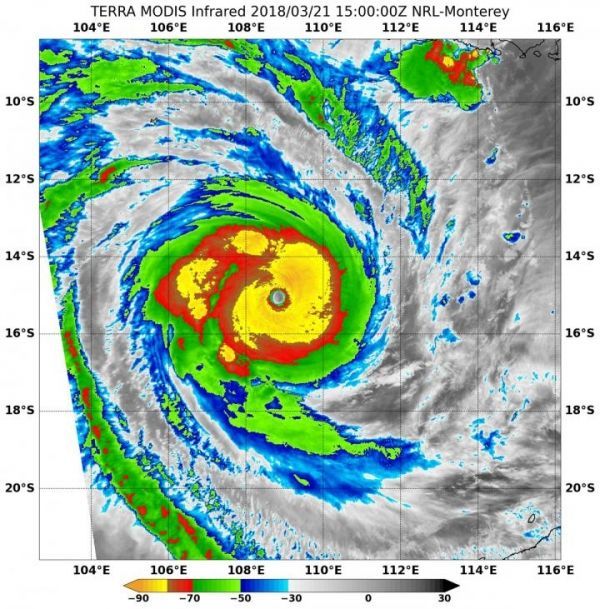
Tropical Cyclone Marcus continues to strengthen as it moves further away from Western Australia. NASA's Aqua satellite analyzed the system in infrared light to find the strongest part of the hurricane.
By analyzing a storm in Infrared light, scientists can tell cloud top temperatures that give clues about the location of the highest, coldest and strongest storms.
>> Read the Full Article

 ENN
Environmental News Network -- Know Your Environment
ENN
Environmental News Network -- Know Your Environment